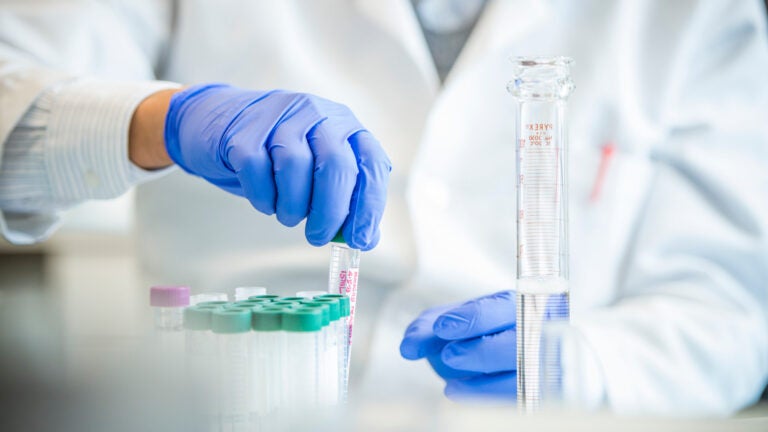
The rankings represent total NIH funding granted from Oct. 1, 2015 through Sept. 30, 2016. (Photo/Chris Shinn)
Keck School of Medicine of USC receives its highest ranking in NIH funding
USC departments in ophthalmology and preventive medicine are No. 2 in the United States
The Keck School of Medicine of USC has received its highest ranking in funding from the National Institutes of Health since the Blue Ridge Institute for Medical Research began its annual ranking of medical schools in 2006.
The rankings represent total NIH funding granted from Oct. 1, 2015 through Sept. 30, 2016. The Keck School of Medicine received more than $140.8 million in NIH grants during this time.
The USC Department of Ophthalmology and Department of Preventive Medicine both ranked No. 2 among the nation’s ophthalmology and preventive medicine departments receiving NIH funds.
Overall, seven Keck School departments ranked within the top-20 NIH-funded departments in their respective areas:
- Ophthalmology – No. 2
- Preventive Medicine – No. 2
- Otolaryngology – No. 11
- Microbiology – No. 17
- Neurology – No. 18
- Urology – No. 18
- Physiology – No. 20
“Keck School of Medicine’s current positioning represents the most impressive ranking of NIH funding the school has received to date,” said Rohit Varma, dean of the Keck School and director of the USC Roski Eye Institute. “Our strong performance and rise in rankings reflect the groundbreaking work of our world-renowned faculty, dedicated staff and committed researchers, including the addition of 19 new principal investigators in the last year.”
The Keck School also ranked No. 1 in NIH funds received per principal investigator. A total of 158 principal investigators received an average of more than $891,000, securing the school’s place in that top spot.
“The Keck School of Medicine’s No. 1 ranking in NIH funds received per principal investigator demonstrates the strength of researchers that we attract at the Keck School,” said Thomas Buchanan, vice dean for research. “These competitive grants allow us to further innovate and support our mission to improve the quality of life for individuals and society by promoting health, preventing and curing disease, advancing biomedical research and educating tomorrow’s physicians and scientists.”



